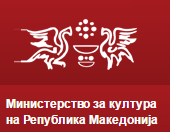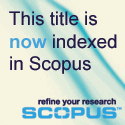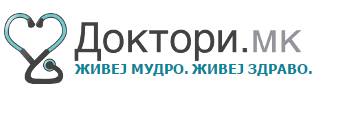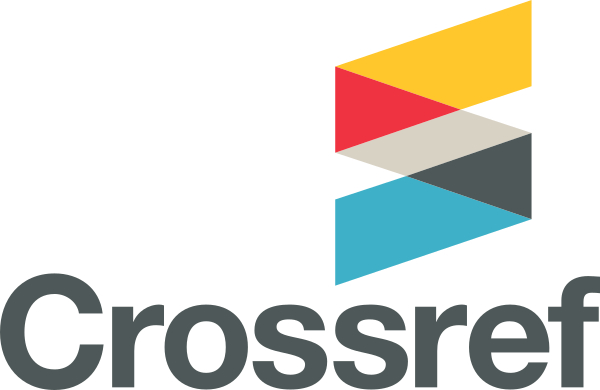JSER Policies
JSER Online
JSER Data
Frequency: quarterly
ISSN: 1409-6099 (Print)
ISSN: 1857-663X (Online)
Authors Info
- Read: 78690
|
КЛУЧНИ ДВИГАТЕЛИ ВО ПОТРЕБИТЕ ЗА ОПТИМАЛНИ ОДРЕДБИ ЗА ПОСЕБНО ОБРАЗОВАНИЕ: АНГЛИСКА СТУДИЈА
Санеја КЈУРЕШИ
Институт за социјална иновација и |
|
KEY DRIVERS OF OPTIMAL SPECIAL EDUCATION NEEDS PROVISION: AN ENGLISH STUDY
Saneeya QURESHI Institute for Social Innovation and Impact,The University of Northampton, United Kingdom |
||
|
Примено: 17.08.2015 |
|
Recived: 17.08.2015 |
||
|
Вовед |
|
Introduction |
||
|
Координаторот за посебни образовни потреби во Англија координира услуги за децата со посебни образовни потреби (ПОП) и им помага на наставниците да направат и да имп-лементираат соодветно планирање, мерки и средства за децата со ПОП во редовните училишта (1). Имајќи пред-вид дека улогата е воведена од 1994 го-дина, таа се разви во различни начела кои постојано ги редефинираат одредбите за ПОП (посебните образовни потреби) во Англија (2–4). Проблемот сега е тоа што мо-менталната законска регулатива во Анг-лија постави „радикални реформи“ (5) на сегашниот систем за идентификување, оценување и поддршка на деца и млади лица кои имаат ПОП, што несомнено влијае на динамиката на координаторите за посебни образовни потреби (6). |
|
A SENCO in England coordinates services around children with Special Educational Needs (SEN), and helps teachers to develop and implement appropriate planning, provision and resources for children with SEN in mainstream schools (1). Since the role was introduced in 1994, it has evolved as various policies continually redefined SEN (Special Educational Needs) provisions in England (2–4). The issue is timely now that the current legislation in England has put in place “radical reforms” (5) of the current system for identifying, assessing and supporting children and young people who have SEN, which undoubtedly impacts the SENCO-teacher dynamic (6). |
||
|
Европски контекст |
|
European context |
||
|
Brusling и Pepin (11:стр.198) ги катего-ризираат приодите кон инклузијата во европските држави во три различни на-соки: |
|
Brusling and Pepin (11: p.198) categorised the approaches to inclusion in European countries into three distinct strands: |
||
|
Фокус на истрага |
|
Focus of inquiry |
||
|
Во овој труд, главното прашање е дали координаторите за посебни образовни потреби ги зајакнуваат способностите на наставниците да станат ефективни наставници на деца со ПОП и кои се потребните двигатели да се постигне ова. Оваа студија беше спроведена во период од 2012 до 2014. |
|
In this paper, the main research question is whether or not SENCOs enhance teachers’ abilities to become effective teachers of children with SEN, and what the necessary drivers are to achieve this. This study was undertaken between 2012 and 2014. |
||
|
Методи |
|
Methods |
||
|
Фокусот на ова истражување е на ква-литативните податоци добиени од анкети и интервјуа со учесниците во однос на прашања споменати претходно. Студијата се состоеше од две фази. Првата вклучуваше анкета на специјално селектиран примерок од 223 координатори за посебни образовни потреби од основни училишта од кур-сот за „Национална награда за коорди-наторите за посебни образовни потреби“, одржан на Универзитетот во Нортхемптон, ВБ. Сегашниот курс, „Национална награда за координаторите за посебни образовни потреби“ е задолжителен професиона-лен развој за сите нови координатори за посебни образовни потреби и за оние кои работеле како координатори нај-малку 12 месеци пред септември 2009 година (22). Намерата на законот беше до 2011 сите координатори да бидат квалификувани наставници или класни раководители. Законодавните насоки исто така предлагаат дека сите аспекти на оваа улога можат да бидат поддржани од ненаставниот кадар (18, 22). |
|
The focus of the research is on the qualitative data obtained from surveys and interviews with participants with regard to the research question mentioned earlier. The study consisted of two phases. The first involved a survey of a purposive sample of 223 primary school SENCOs from the ‘National Award for SEN Coordination’ Course, based at the University of Northampton, UK. The current course, the ‘National Award for SEN Coordination’, is a mandatory professional development for all new to role SENCOs and those who have been working in the SENCO role for less than 12 months prior to September 2009 (22). The legislative intention was that by 2011, all SENCOs would be a qualified teacher or the head teacher. Legislative guidelines did, however, also suggest that aspects of the role could still be supported by non-teaching staff (18, 22). |
||
|
Резултати и дискусија |
|
Results and discussion |
||
|
Податоците покажуват дека координа-торите имаат комплексна улога, влијаат на практиката на наставниците преку илустрирање различни способности, знаења и искуства во различни контекси и социјални интеракции. Тие се под влијание без оглед на тоа дали се или не се членови на водечките тимови во училиштето. Понатаму, менаџирањето на времето на координаторите е постојана грижа при балансирање на приоритетите и барањата што вклучува соработка и уредување на надво-решните ресурси за поддршка. Постојат докази дека степенот до кој координаторите имаат позитивно влијание на инклузивните способности на наставниците варира бидејќи динамиката на координаторите е под влијание на бројни фактори кои се наречени „клучни двигатели на одред-бите за ПОП во Англија“. Овие вклучу-ваат:
Одржувањето заеднички состаноци ре-довно или по потреба, време за дискусии, е значаен двигател што е илустриран не само во објавената студија која е сведоштво на координатори за посебни образовни потреби (27) за кој времето е едно од најзначајните богатства, но исто така во коментарот на учесникот кога му е пос-тавено прашањето кои аспекти од уло-гата би ги максимизирале за влијанито на кординаторот на неговите способности да бидат дел од оптималната одредба:
Во однос на отвореноста на наставниците кон промена како клучен двигател во однос на тоа како наставниците и координаторите за ПОП можат да помогнат децата со ПОП да напредуваат, Derrington (29), првично ги истакнува доказите кои ги истак-нуваат различните ставови кон инклузи-јата, со особено нагласување на напре-докот на децата со ПОП. Ова е поната-му елаборирано од Cowne кој зборува за клучната улога на координаторите во тоа време кои „ги охрабруваат промените во ставовите на персоналот преку нудење на стратегии и информации како и преку подобрување на нивното менаџирање со ресурсите.“ (28: стр. 67). Сепак, проблемот околу ова не е систематски решен, како што вели Cowne и како што е докажано во сведоштвото на еден координатор за ПОП кој вели:
Од Ellis и сор. беше известено за пра-шањето околу вклученоста на наставниците во процесот на идентификација и последователната продукција на значајни резултати за наставниците (30). Ова дополнително беше поткрепено од Berry (31: стр.38), кој изјави дека „податоците за прогре-сот на учениците се корисни само ако ги придвижуваат активностите што ги преземате.“ Бројните координатори за ПОП и наставници, вклучувајќи ги и оние што партиципираа во ова истражување го подржаа ова тврдење, еден од нив рече:
Tissot посочува дека координаторите се одговорни за сеопфатно работење со нивните колеги наставници за да го обезбедат максимумот во различните приоди на изведување настава (17, стр. 35). На крајот, еден координатор изјави дека нејзината улога е суштинска за:
Знаењето на координаторите и нивната лична перцепција на улогата што ја имаат се истражувани од Griffiths и Dubsky (33), коишто алудираат на развивање стратешка визија отелотворена во улогата на коорди-наторот за ПОП. Широкиот аспект на охрабрување на наставниците од страна на координаторите преку обуки во кон-текст на степенот до којшто координа-торите можат да ги мотивираат настав-ниците да преземат иницијатива во справувањето со потребите на децата со ПОП, беше објаснет од еден од наставниците кој рече:
Донесувањето одлуки од страна на ко-ординаторите и дисеминацијата на ин-формации е уште еден клучен двигател што има директно влијание на одредбата за ПОП. Додека авторот патуваше до различни места за да ги интервјуира координаторите, наставни-ците и класните раководители, додека ги набљудуваше во ситуации во нивни-те училишта за време на проектот, им влеа и самодоверба да го гледаат донесувањето на одлуки и пристап-носта преку формални и неформални канали за комуникација како дел од тоа дека координаторот е клучен двигател во одредбата за ПОП. Всушност, коор-динаторите мора да се стремат да раз-мислуваат поотворено во однос на из-наоѓањето начини и средства да го пос-тигнат ова. Tissot (18: стр.35) алудира на ова исто како и Kearns (34), во неговото опишување на координаторите како „Арбитри“, кои „преговарааат, рационализираат и ја на-бљудуваат употребата на ресурсите за ПОП во нивните училишта.“ Ова општо размислување е рефлектирано во тврде-њето на еден од наставниците, учесни-ци во истражувањето: |
|
Data illustrate that SENCOs have a complex role, impacting upon teachers’ practices by utilising a wide range of skills, knowledge and expertise across different contexts and social interactions. This is influenced by whether or not they are members of their School Leadership Teams. Further, SENCOs’ time management is a constant concern in balancing competing priorities and demands, which include liaising with and arranging external support resources. There is evidence that the degree to which SENCOs have a positive impact on teachers’ inclusive skills varies, as the SENCO-teacher dynamic is influenced by a number of factors, which I have termed as ‘key drivers of SEN provision in England’. These include:
Having mutually-convenient meetings on a regular basis, or essentially, just the time for discussions, is a significant driver that was illustrated not only by the published case study testimony of a practising SENCO (27) who referred to time as being a SENCO’s most valuable asset, but also in this participant’s comment when asked what aspects of the role would maximise the impact of the SENCOs advice on her abilities to impart optimal provision:
In terms of teacher openness to change as a key driver of how teaching professionals and SENCOs’ can ensure that children with SEN make progress, Derrington (29), initially highlighted the growing body of evidence at the time that depicted varying attitudes towards inclusion, with specific emphasis on the progress of children with SEN. This was further elaborated by Cowne who discussed the key role at that time, of SENCOs, to “encourage changes in staff attitudes by offering strategies and information as well as playing their part in improving the strategic management of resources.” (28: p.67). However, the issues around this are not as simplistically solved, as implied by Cowne, as evidenced by the testimony of one SENCO who said:
The issue about teachers’ involvement in the process of identification and the subsequent production of meaningful outcomes for teachers was reported by Ellis et al. (30). This was further substantiated by Berry (31: p.38) who stated that “data on student progress is only useful if it drives the actions you take.” A number of SENCOs (32), and teachers, including those who participated in this study supported this assertion, one of who said:
Tissot inferred that SENCOs have a responsibility to work comprehensively with their teaching colleagues so as to ensure the optimal provision of differentiated teaching approaches (17, p.35). To this end, one SENCO stated that her role is essentially about:
The knowledge aspect with regard to SENCOs’ own perceptions of their roles is explored in research conducted by Griffiths and Dubsky (33), who alluded to a developing strategic vision that is embodied within the SENCO role. The over-arching aspect of empowerment of teachers by SENCOs through training in the context of the extent that SENCOs can motivate teachers to take the initiative in managing the needs of children with SEN was elucidated by one teacher who said that:
Decision-making by SENCOs and dissemi-nation of information is another key driver which directly impacts SEN provision. As the author travelled to the places of work to interview SENCOs, teachers and head teac-hers, observing them in situ at their respective schools during the course of the research project also gave credence to the view that decision-making and approachability via formal and informal channels of communication on the part of the SENCO is a key driver for optimal SEN provision. Indeed, SENCOs must constantly strive to think out of the box in terms of finding ways and means to achieve this. Tissot (18: p.35) alluded to this, as did Kearns (34), in his contention that SENCOs function as ‘Arbiters,’ “negotiating, rationa-lising and monitoring the use of SEN resources in their schools.” This general finding is reflected in a participant teacher’s assertion that:
|
||
|
Заклучоци и импликации |
|
Conclusion and Implications |
||
|
Резултатите, како што се илустрирани погоре, покажуваат дека координаторите имаат комплексна улога. Клучните теми кои беа развиени се: професионалниот идентитет на координаторите како „агенти на промена“; тешкотиите да се обезбеди баланс меѓу преголемата доверба на наставниците и искористувањето на ов-ластувањата на координаторите; приро-дата на интервенциите и одредбите за децата со ПОП во однос на „вообичаена“ поддршка, наспроти тоа што е „над“ нормалната пракса. |
|
Findings therefore, as illustrated in the earlier section, indicate that SENCOs have a complex role. Key themes that have been developed include: SENCOs’ professional identity as ‘agents of change’; the difficulties of ensuring the balance between teachers’ over-reliance and under-utilisation of SENCOs’ remit; and the nature of interventions and provisions made for children with SEN in terms of the ‘usual’ support, versus that which is ‘over and above’ normal practice. |
||
|
Ограничувања на студијата |
|
Limitations of the study |
||
|
Додека се разгледува процесот важно е да се знае дека постојат одредени огра-ничувања поврзани со различни аспекти на студијата. Ограничувањата кои се истакнуваат во однос на оваа студија за влијанието што координаторите го имаат за способностите на наставниците при задоволување на потребите на децата со ПОП, се дека е мал бројот на примерокот, примената на похолистичен поглед, или дефи-нираниот заклучок се намалени. |
|
It is important whilst reviewing the process, to acknowledge that there are some limitations associated with various aspects of research. The limitations that stood out as regards this research project into the impact of SENCOs on teachers’ abilities to address the needs of children with SEN, were that, in view of the limited sample size, the applicability to a more holistic point of view, or defining conclusion is reduced. In terms of the research cohort, as has already been acknowledged, SENCO participants were all those who were enrolled on the UK ‘National Award for SEN Coordination’ course. The weighted average number of years of experience of this research participant cohort was approximately 1.5 years. Therefore, it is significant to point out that the data derived from this project needs to be understood in that context. Indeed, it is also acknowledged that results may be different if the same questionnaire and interview process is applied to SENCOs who have been in the role for more extended periods of time, and therefore, have more of a breadth of experiences upon which to call. |
||
|
Препораки за понатамошно истражување |
|
Recommendation for further study |
||
|
Еден од аспектите за понатамошно ис-тражување се однесува на обуката на координаторите за ПОП, особено во европски контекст, бидејќи улогата е во процес на воведување, па затоа „профе-сионализацијата“ на улогата на координаторите треба понатаму да се истражи. Ова е почеток на промените на англиската легислатива (22), при што од координаторите, според закон, се бара да бидат квалификувани нас-тавници за да можат да ја завршат за-должителната квалификација за улогата. Ова е во поглед на различните мислења што ги имаат интервјуираните учесници (иако обуката не беше едно од важните прашања во истражувањето). Еден од коорди-наторите за ПОП во однос на задолжи-телната обука рече: |
|
An aspect of possible future research relates to that of SENCO training, particularly in a European context as the role is in the process of being introduced, so a reflection upon the English experience of the “professionalization” of the SENCO role might be worthwhile further investigation. This is predominantly in the wake of the changes to English legislation (22), whereby all SENCOs are required by law to be qualified teachers, so as to be able to complete the mandatory qualification for the role. This is in view of the differing opinions that were aired by the interviewees (despite training not being one of the essential research questions of this project). Whilst referring to the mandatory training, one SENCO interviewee commented: |
||
|
Конфликт на интереси Авторот изјавува дека не постои конфликт на интереси. |
|
Conflict of interests Author declares no conflict of interests. |
||
|
Citation: Qureshi S. Key drivers of optimal special education needs provision: an English study. J Spec Educ Rehab 2015; 16(3-4):13-29. doi: 10.1515/JSER-2015-0009 |
||||
|
Article Level Metrics |
||||
|
Референци/Reference |
||||
|
|
|
|
||
Share Us
Journal metrics
-
 SNIP 0.059
SNIP 0.059 -
 IPP 0.07
IPP 0.07 -
 SJR 0.13
SJR 0.13 -
 h5-index 7
h5-index 7 -
 Google-based impact factor: 0.68
Google-based impact factor: 0.68
10 Most Read Articles
- PARENTAL ACCEPTANCE / REJECTION AND EMOTIONAL INTELLIGENCE AMONG ADOLESCENTS WITH AND WITHOUT DELINQUENT BEHAVIOR
- RELATIONSHIP BETWEEN LIFE BUILDING SKILLS AND SOCIAL ADJUSTMENT OF STUDENTS WITH HEARING IMPAIRMENT: IMPLICATIONS FOR COUNSELING
- EXPERIENCES FROM THE EDUCATIONAL SYSTEM – NARRATIVES OF PARENTS WITH CHILDREN WITH DISABILITIES IN CROATIA
- INOVATIONS IN THERAPY OF AUTISM
- AUTISM AND TUBEROUS SCLEROSIS
- THE DURATION AND PHASES OF QUALITATIVE RESEARCH
- REHABILITATION OF PERSONS WITH CEREBRAL PALSY
- DISORDERED ATTENTION AS NEUROPSYCHOLOGICAL COGNITIVE DISFUNCTION
- HYPERACTIVE CHILD`S DISTURBED ATTENTION AS THE MOST COMMON CAUSE FOR LIGHT FORMS OF MENTAL DEFICIENCY
- DIAGNOSTIC AND TREATMENT OPTIONS IN AUTISTIC SPECTRUM DISORDERS – AN OVERVIEW
















